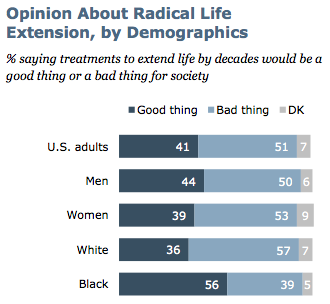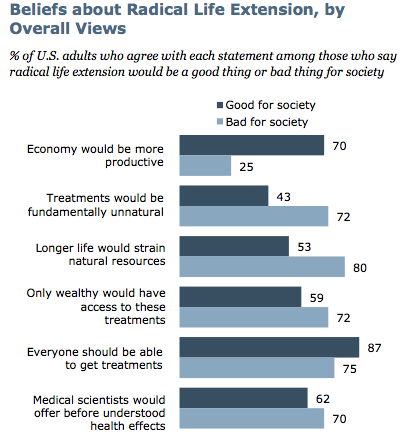Cheating Death and Being Okay With God
One in four Americans believes that by 2050, most of us will live to 120. Is that good?
![[IMAGE DESCRIPTION]](https://cdn.theatlantic.com/assets/media/img/posts/holybathsmain.jpg)
This Spring we learned of 32-year-old Russian multimillionaire Dmitry Itskov's determined 2045 Initiative, which involves "mass production of lifelike, low-cost avatars that can be uploaded with the contents of a human brain, complete with all the particulars of consciousness and personality." The mid-century goal, in which Itskov seems confident, is meant as a step toward immortality.
David Segal in The New York Times put to paper the reaction of many: "Are you insane?"
Still almost three-quarters of American predict that by 2050, "artificial arms and legs will perform better than natural ones." A substantial majority also believe that by that point we'll have cures for most forms of cancer. And fully 25 percent of Americans think that by mid-century, the average person will live to at least 120.
Those numbers are according to Pew Research Center’s Religion and Public Life Project, which just released results of an exhaustive study on our feelings about "radical life extension."
That term, used primarily by bioethicists and medical researchers, is still surfacing in mainstream conversation—most people report that they haven't heard it before—but that's changing quickly. Radical life extension doesn't usually conjure Itskovian avatars, but rather a body of slightly more intuitive (but still abstract) "treatments aimed at prolonging life." The Pew project was undertaken because leading bioethicists foresee schismatic discussion around anti-aging research and treatments to become increasingly pointed in the not-distant future. Here we have the first large-scale breakdown of public perceptions.

